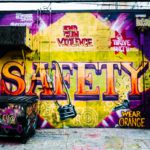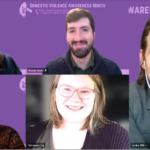Fursad Maaliyadeed oo Cusub oo Lagu Taageero Bulshooyinka Amni ee Seattle
Mudaharaadka lagaga soo horjeedo waxyeelada bilayska, gaar ahaan bulshooyinka Madaw, ayaa Maraykanka oo dhan iyo caalamka ku faafay kadib markii la dilay George Floyd. Sida magaalooyin badan oo kale, baaqa cadaalada iyo xalka ay bulshadu hogaaminayso ee soo afmeerka cadaalada, oo ay wadaan qaban qaabiyayaasha Madaw iyada oo iska kaashanayaan… [ Keep reading ]





